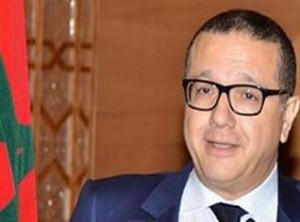The North Africa Journal: Morocco has a 2015 budget that takes into account a 4.4% GDP growth, up from a projected 4.2% this year.
For many, the forecast growth is a bit too optimistic and may be misleading. Morocco planning council HCP for its part projects a more sluggish 2.5% GDP growth, but that takes into account a barrel of oil priced at an average of $103. So far, the HCP may have to revisit its figure a bit upward considering oil prices at $20 below that level.
The Moroccan government also remains optimistic on the agricultural front. Agriculture is one of the key components of the Moroccan economy. Any fluctuation in output could generate major swings in economic performance. And cereal production is key. In 2015, Moroccan predicts that cereal production will increase by 10.3% year on year to 7.5 million tons. The target is reachable, considering the relatively poor harvest of this year. However, it is difficult to predict the climate that early on and so planners went with a comfortable 10% growth.
The 2015 budget will end up with a deficit equivalent to 4.3% of GDP, down a bit from 4.9% predicted for this year. The government says its goal is to move to a more balanced macro figure by 2016. The authors admitted that they had to refrain from spending more to avoid a more drastic deficit outcome. Public investments will expand by 2% to MAD 189 billion, equivalent to $16.8 billion, money that will be earmarked to government institutions, special treasury accounts and regional investments.
A thorny issue remains the country’s large debt. The debt is so high that its servicing (reimbursement plus interest) will absorb MAD 68 billion (US$ 6 billion) up 19% from 2014 level. The vast majority of the public debt is domestic, accounting for almost 90%.
A novelty in the Moroccan budget is the reduction of the contribution into the Moroccan treasury of the State-owned companies that have a monopoly position. This is in some sense a major reduction in the corporate tax for company that already benefit from a state of no competition. Morocco has instituted such tax as a payment for maintaining a monopolistic position in the market. For example the phosphate and fertilizer giant OCP will see its payout to the State reduced from MAD 4 billion in 2014 to MAD 2 billion in 2015. This is a 50% reduction aimed at helping the company face a volatile global market amid its own major expansion program. The Central Bank, Bank al-Maghrib will contribute with a payment of MAD 360 million, down 36% from 2014 level. Even the dividends coming from the State’s ownership of large corporate equities are expected to drop. Specifically is phone operator Maroc Telecom, where dividend payout to Morocco will drop from MAD 1.8 billion in 2014 to MAD 1.4 billion in 2015. The exception is that of savings firm CDG, which will see its payout raised from MAD 360 million this year, to MAD 700 million in 2015. In all, the fees obtained from State monopolies will be reduced by more than 26% from 2014, a dent that constitutes a big chunk in the budget.
How to Reduce the Budget Deficit? Deep Subsidy Cuts on the Horizon, Push Retirement Age
Moroccan consumers and businesses accustomed to government subsidies will be the first to contribute to the reduction in the budget deficit. In particular, products of mass consumption are slated to be the target of subsidy cuts. The government’s subsidy fund peaked in 2012 with spending exceeding MAD 55 billion, or nearly US$ 5 billion. In 2014, early projections show a substantial drop of 34% to MAD 34 billion through a series of price liberalizations affecting gasoline and petroleum products in particular.
In 2015, the cuts are expected to sustain and will be event deeper. The authors of the budgets see another 32% reduction to just about MAD 23 billion, still affecting again gasoline and fuel prices.
The government is also proposing to push the legal retirement age from 62 today to 65, through a progressive move. The decision, awaiting approval from the parliament has raised uproar among trade unions, threatening the party of Prime Minister Benkirane of retaliation in the 2015 local and regional elections.








